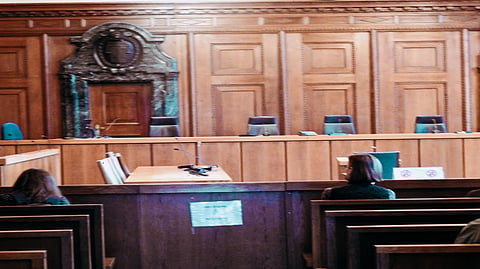
- Latest Legal News
- News
- Dealstreet
- Viewpoint
- Columns
- Interviews
- Law School
- Legal Jobs
- हिंदी
- ಕನ್ನಡ

I recently attended a creative writing workshop where I was introduced to the basics of story writing. What surprised me is how similar a story is to a judgment. While it comes off as a fleeting thought at first, there are some interesting parallels that come to mind.
The first aspect of any story is conflict. There exists no story where there’s no obstacle. It might be the protagonist wanting to climb Mount Everest or race through the traffic to reach work on time. You get the idea. And what is the starting point of any case? A conflict. Two people, who couldn’t agree on a point, and needed external help for their problems.
It doesn’t end there.
A good story needs to have character consistency, and so does good case law. It’s lamentable when it doesn’t happen in both, but I guess somewhere we learn to settle for sub-par outcomes. Every time you see a character behaving in a way totally antithetical to their character, you squirm a little. Something doesn’t feel right. It would do well for judges also to remember this. The result would be no per incuriam judgments. No reason for future readers to feel something amiss.
Next we look at timelines. While some stories follow a linear timeline, others might be all over the board. The same is with judgments. While most stick to a linear timeline: facts, history in lower courts, arguments by both sides and final judgment; others might take a reader a few sittings to figure out what happens when.
The story then moves towards an inflection point where the character realizes what’s holding them back, and then finally there is resolution. This is a basic three part story.
Even in judgments, there has to be resolution at the end. The slight difference is that the reasoning for the resolution is often (and should be) more apparent in a judgment. While stories can rely on motifs, metaphors etc., judgments need to be explicit and leading. Some authors do not like people coming to them with interpretation of their stories. It’s not my job to interpret, it’s yours, is the often relied on reasoning. However, the judges' onus is to do the opposite - interpret and communicate it clearly. The idea of ‘interpretation’ can also be applied to authors- they interpret life, provide a lens to view the realities and make better humans of all of us.
Other advice often given in these workshops also holds true for judgments. Like writing simply - an idea that would do our fraternity much good; writing about what you know- something we see in judgments all the time as judges often have their areas of specialization. It isn’t that authors don’t dabble in genres and forms new to them; similarly, judges might also be allotted cases which fall outside their forte.
Some might say that judgments have earth-shattering consequences, while fiction is nothing but musings conjured to entertain. However, stories also have the power to devastate. Was the death of Sherlock Holmes and the outrage over it any less than the death of a real person? Was the furore caused by Sabrimala different than the ire caused by Satanic Verses? I’m not sure.
The one thing storytellers do more effectively is make people feel more invested in the story. If only that was the case with judgments, we wouldn’t just look at cases in terms of ratio, obiter, arguments, but how these impact actual lives, thus leading to a more humane approach to law. Something much needed in these times.
The author is a Delhi-based advocate.